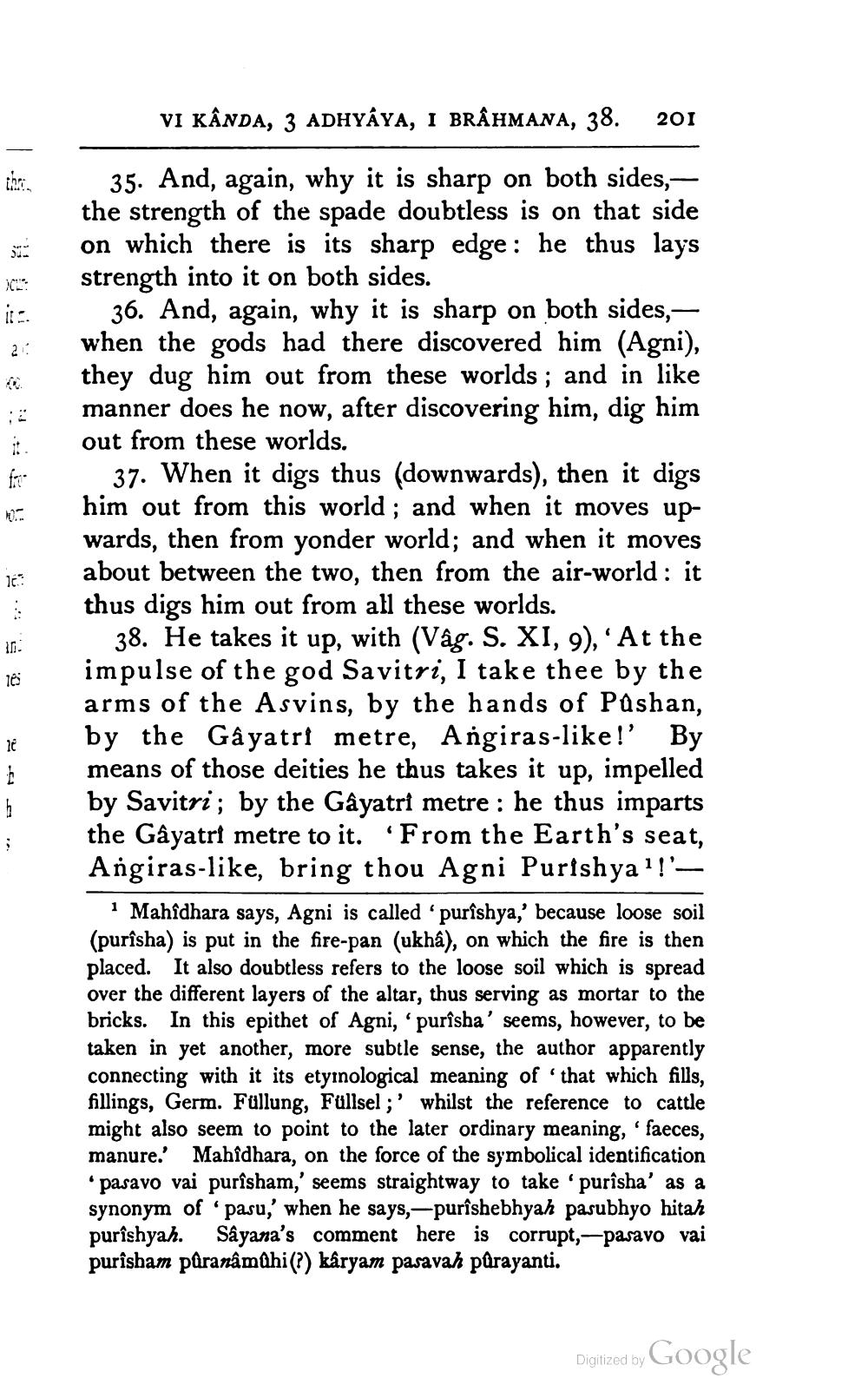________________
VI KÂNDA, 3 ADHYAYA, I BRÂHMANA, 38.
201
35. And, again, why it is sharp on both sides, the strength of the spade doubtless is on that side on which there is its sharp edge: he thus lays strength into it on both sides.
36. And, again, why it is sharp on both sides,when the gods had there discovered him (Agni), they dug him out from these worlds; and in like manner does he now, after discovering him, dig him out from these worlds.
37. When it digs thus (downwards), then it digs him out from this world; and when it moves upwards, then from yonder world; and when it moves about between the two, then from the air-world: it thus digs him out from all these worlds.
38. He takes it up, with (Vág. S. XI, 9), “At the impulse of the god Savitri, I take thee by the arms of the Asvins, by the hands of Pashan, by the Gayatri metre, Angiras-like!' By means of those deities he thus takes it up, impelled by Savitri ; by the Gayatri metre: he thus imparts the Gayatri metre to it. 'From the Earth's seat, Angiras-like, bring thou Agni Purishya 1!'
1 Mahîdhara says, Agni is called 'purîshya,' because loose soil (purîsha) is put in the fire-pan (ukhâ), on which the fire is then placed. It also doubtless refers to the loose soil which is spread over the different layers of the altar, thus serving as mortar to the bricks. In this epithet of Agni, purîsha' seems, however, to be taken in yet another, more subtle sense, the author apparently connecting with it its etyinological meaning of that which fills, fillings, Germ. Füllung, Füllsel;' whilst the reference to cattle might also seem to point to the later ordinary meaning, ' faeces, manure. Mahidhara, on the force of the symbolical identification
pasavo vai purîsham,' seems straightway to take purîsha' as a synonym of 'pasu,' when he says,-purîshebhyah pasubhyo hitah purîshyah. Sayana's comment here is corrupt,-pasavo vai purisham püranâmûhi(?) kâryam pasavah půrayanti.
Digitized by Google




